Also: Establishing diplomatic relations with Assad and Taliban and the positioning in the Israel-Palestine conflict.
Also: Establishing diplomatic relations with Assad and Taliban and the positioning in the Israel-Palestine conflict.
With the election of Donald Trump as president in the US, eyes turned to Europe. After all, the signals of this change in the US first came from Europe. The European governments with the globalists in the driving seat found themselves in serious crises when they were dragged behind Biden’s plans. The nationalist forces that stood against this achieved important success both in the elections of their own countries and the European Parliament. Just as the rise of nationalist forces were reflected in the US, the result of the US elections will also affect Europe.
In fact, it has already started. Germany has come first. The Scholz government has collapsed. Germany will witness a new stage in the struggle between the forces of sovereignty who advocate for “Germany for Germany” and those who say “Germany for the US”.
This struggle does not only concern Germany. It is not only important for our country because of the Turks living there. It could also have important consequences for the long-standing Turkish-German relations and world balances.
In order to better understand these developments, we conducted an interview with Tino Chrupalla, Co-Chairman of the Alternative for Germany (Alternative für Deutschland – AfD), one of the most important poles of this struggle.
Tino Chrupallla has been chairman of the Alternative for Germany (AfD) party since 2019 and leader of the AfD parliamentary group in the Bundestag since 2021 together with Alice Weidel.
Born in 1975, Chrupalla, who until 2020 worked as a painter’s laborer in his own company, is known as a man who does not like to make flowery political speeches. He expresses what he wants to say in a direct, simple way. No meandering, empty diplomatic sentences that lead nowhere. Just what we were looking for!
Encouraged by this, we prepared our questions accordingly.
“We will establish diplomatic relations with Assad and Taliban”
Our primary topic is the famous “extreme nationalism” and “xenophobia”.
When we read the mainstream Western press, the most common descriptions of the AfD are “ultra-nationalist” and “xenophobic”. Is the AfD really xenophobic? How does the AfD define itself?
“The Alternative for Germany is the party of sovereignty. We are committed to ensuring that Germany maintains the best possible relationships with all countries. We do not want to dictate to other countries how they should live. We represent a policy based on interests and want a free and peaceful trade with the entire world. No sanctions, no trade wars. Also domestically we represent the interests of the citizens. My party seeks to strengthen the position of Germany and halt deindustrialization. In the interest of the citizens, we also aim to protect the borders and stop illegal immigration. In recent years, we have become uncontrolled immigration from Syria, Afghanistan, and African countries. This deteriorates internal security and social systems. More and more citizens are calling to stop this immigration. To achieve this, we aim to establish diplomatic relations with Syria and Afghanistan. Our goal is a limited migration that benefits everyone.”
“Run away, the nationalists are coming”
In foreign policy Chrupalla insists on German sovereignty, but he is also sensitive to the sovereignty of other countries.
His opposition to sanctions and trade wars should be reasonable for any German with his own head on his shoulders. The US-imposed sanctions on Ukraine, moreover, are not hitting Russia, but Europe itself. Today Europe has even fallen short of its own principles of free trade. This is essentially part of the US plan. Washington doesn’t want a Europe that rivals itself as a separate pole.
The AfD leader also emphasizes the need for diplomatic relations with Assad and the Taliban as a solution to the migrant problem. In Türkiye, there is a reason why we call to “agree with Assad and solve the migration problem”. Europe has played a serious role in the creation of the migrant problem by following the US policies in the Middle East. It finds the solution in putting pressure on Türkiye. However, the solution lies in getting to the root of the problem.
Not only in the case of the AfD, but anyone who insists on the sovereignty of his/her own country in the face of the US is immediately labelled as “ultra-nationalist”. The Cold War-era fear of “communists” has now been replaced by the propaganda of “run away, the nationalists are coming”.
However, no one denies that national states are on the rise in the post-pandemic world. The consolidation of the multipolar world reveals this reality more and more every day.
“It is possible both to preserve your roots and be a German patriot”
Then, of course, we cannot help but ask Tino Chrupalla about the Turks in Germany:
In Germany, there is a large population of Turkish-German citizens. Is the AfD also the party of Turks in Germany? What does the AfD promise them?
“German citizens of Turkish descent are an important part of our country. They have put down roots here, contribute to our prosperity, and are sensitive to political issues. I have always said: These citizens are welcome in Germany and in the AfD. We represent their interests because they, too, benefit from good economic conditions, secure borders, and peaceful foreign trade. I see no contradiction in being a German patriot while also honoring the heritage of one’s ancestors who came here as migrants.
This distinguishes our approach from other parties’ voter gaining strategies. Other parties often pursue superficial clientelism, appealing to minorities by promoting candidates from their communities and feigning sympathy. In the end, they enact policies against these groups’ interests. What we promise citizens with Turkish migration backgrounds is a good life in peace and prosperity. Together, we all benefit from a Germany that freely determines its own course.”
How many immigrants will be unemployed if Volkswagen closes plants?
Chrupalla’s emphasis is really important. Preserving the culture, language, traditions and customs of the land of origin is not an obstacle to integration with the country of citizenship. On the contrary, these two processes can meet more easily and healthier as they deepen together.
In addition, many problems of Turks in the country are common with Germans. Is it possible to say that the deindustrialisation of Germany does not affect a Turk? In fact, this problem concerns immigrants even more. I wonder how many Turks, Serbs or Arabs will become unemployed with the closure of the Volkwagen factories?
Now we move on to an even more interesting topic for me. Could there be a nationalist-socialist alliance in Germany?
In the last elections, besides the AfD, BSW also increased its votes. There has been much discussion about similarities between the two parties. Even the possibility of a coalition was being discussed. What do you have in common with BSW? Where do you differ? Is there a possibility for collaboration in various areas? I ask this as someone who co-organized joint demonstrations in 2003 between socialists (the Workers’ Party) and nationalists (Ülkü Ocakları) in Türkiye against the US imperialism, which caused a stir in the country.
“The distinction between right and left does not correspond to the problems of our time. In fact, it can even prevent the problem to be solved in collaboration. Personally, I see people who want to solve problems and people who want to make them worse. The wars in Ukraine and the Middle East are causing great suffering and threatening our security. As a peace-oriented party, we share common ground with the BSW on this issue. Also, on the topic of migration, BSW adopted some of our positions. The BSW presenting itself as a more palatable version of the Alternative for Germany and offering to be a coalition partner at the state level. The rationale was this: a left-wing party that represents national interests faces less repression in Germany than a “right-wing” party that does the same.
There are, of course, differences: BSW places a stronger emphasis on redistribution, while we focus on reducing bureaucracy and burdens. However, I believe it is possible to come to a social compromise. BSW should not build firewalls like other parties do. Germany’s national interest comes first.”
The nationalist-globalist difference is everywhere
I was not surprised by the AfD leader’s straightforward answer. We have been saying the same thing, and we still insist on it in Türkiye: “There is no longer a right-left divide. Now the confrontation is between the nationalists and globalists, and the national elements must unite accordingly.”
Wagenknecht’s attitude towards the AfD is nuanced. Wagenknecht says that while other parties approach the AfD with “hysteria”, the BSW has an objective approach. ‘If the AfD says the sky is blue, the BSW will not claim that it is green,’ Wagenknecht says, showing that they can agree with the AfD on reasonable demands.
On the other hand, Wagenknecht states that it should not be inferred from this “objective” approach of the BSW that it is seeking a coalition with the AfD and that a coalition with this party is not possible.
“The climate agenda should not destroy our industry”
We come to one of the most important points. In the past, perhaps the first thing that came to mind when Germany was mentioned was its gigantic economy running like clockwork… Now, when you open and read even the Western press, you encounter a different picture:
Many economists, politicians and institutions describe the state of the German economy as very bad. Some even go so far as to call Germany the “sick man of Europe”. The Ifo’s report published in September was titled “Germany is stuck in crisis”. Do you agree with these descriptions? If so, what are the causes and solutions?
“Germany is going bad. This year, there will be over 20,000 corporate bankruptcies. Energy-intensive industries are offshoring. Volkswagen plans to close plants and lay off thousands of workers. We need to realize what this means: impoverishment, destitution, decay of infrastructure, and unemployment. We can feel that Germany no longer functions as well as it used to in our daily lives: construction sites are opened and never completed. Hardly any train runs on time. Everyday solidarity is eroding. Business leaders and major associations have been warning about this deindustrialization for a long time.
A major cause of this is the energy transition policy (Energiewende-Politik). Back in 2016, Federal Minister of Economics Robert Habeck announced that the Greens, when in government, would stop gas imports from Russia “because we are an energy-transition country”. Nord Stream was the lifeline of our industry. The Ukraine war was simply the pretext for the Greens to halt the pipeline. Volkswagen also made the mistake of relying only on electromobility. But demand for electric cars is stagnating. The German automotive industry can’t function now.
The solutions are simple but it contradicts with the current government policies. We need a broad energy mix with renewable energy as well as nuclear power, coal and gas from Russia. To do this, we need to repair, activate and secure Nord Stream. The climate agenda must not lead to the destruction of our industry. We need openness to technology in the automotive sector and realistic emission limits.
With our policies, we are already the strongest party among workers. But civil servants and employees must also recognize that industry is the foundation of our strength and prosperity.”
Is the train ever late in Germany!
It is not easy to believe the difficult situation in which the German economy has fallen into, as described by Chrupalla. But we are not surprised when we follow the process closely. The trains are late! Another friend of mine from Germany told me this. I reacted, “Trains are never late in Germany”. Herr Chrupalla confirmed it. It is so. Then Germany is really in a serious crisis!
On the other hand, the “green energy” agenda, which AfD co-chairman Tino Chrupalla drew attention to, is in fact another stake that the Biden administration broght to Europe. Now Trump is planning to abolish this agenda for good. Europe is once again left alone with this job that the US has brought upon itself.
In fact, the issue boils down to the fact that the US does not want a strong Europe.
“The Ukraine war is not our war”
In this context, it would have been impossible not to ask one of Germany’s leading politicians about the war in Ukraine:
Chancellor Olaf Scholz stated that the war in Ukraine was a “turning point” for Germany. Germany responded to the war by allocating substantial budgets to the military and providing aid to Ukraine, including war materiel. Do you support this policy? What would the AfD do differently if it had the mandate?
“We have said from the very beginning: this is not our war. And the truth is: this war could have been prevented. It could have been quickly ended through negotiations in Istanbul shortly after it broke out in March 2022. However, the transatlantic West did not want this negotiated solution and in the following years prolonged the war and the suffering with arms supplies and financial support.
On February 27, 2022, in my speech to the Bundestag on the Chancellor’s government statement, I said: We need peace through negotiations. Sanctions are not in Germany’s interest. I urged the government to ensure “prosperity, security, and peaceful coexistence for all nations from Vladivostok to Lisbon”. In the weeks that followed, the Alternative for Germany firmly established this peace position across all its committees. And this June, we boycotted Zelensky’s visit to the Bundestag, declaring that Ukraine needs “not a war and begging president, but a peace-negotiating president, so that the killing stops and the country has a future”. This demonstrates the maturity and resolve of our party, and I am proud of that. In government, we would end confrontational policies and seek to be a partner in building a peace order on the continent.”
The days of the peacemakers are coming
I would like to remind you that we have always it: It was not possible for a well-established civilization and a great economy such as Europe not to have voices of reason reacting against being dragged into the war against its own interests.
But the issue has come to such a point that, beyond economic destruction, it has almost entered the process of sending its own children to the front. If European countries had an interest in the matter, of course they could go to war. But the situation here is completely different.
Now, with Trump, there will be some U-turns in Europe, and there will be those who are afraid of being left holding the bag. But in Germany, the AfD and the BSW recognized this long beforehand and insistently voiced it, and on top of that, they became the target of psychological warfare because they wanted peace.
But now their days are drawing ever closer.
Who sabotaged the Nord Stream?
In this context, it would be appropriate to ask AfD leader Tino Chrupalla about the sabotage of Nord Stream 2. He has brought this issue to the German public many times.
The German government has not issued any statement about who committed the Nord Stream sabotage, despite the significant harm it caused to the German economy. Who and why did this?
“The German government gives the impression that it has no interest in uncovering the background of this attack. Even the CDU/CSU faction, as the opposition leader, seems equally uninterested. This is truly incredible.
In the Bundestag, we called for a parliamentary inquiry into the attack. As the head of a parliamentary force, I must adhere to the means of investigation available to a parliament. Here, we say: The act must be investigated, and the perpetrators held accountable. It must also be investigated whether members of the federal government were informed about the attack either before or after it happened. Additionally, we requested an investigation by the EU Parliament and are now calling for an inquiry by the United Nations. Such an investigation should consider both scenarios that have surfaced publicly so far: the Andromeda scenario, which suggests that Ukrainians carried out the explosion with a private yacht, and the scenario presented by renowned investigative journalist Seymour Hersh, which claims that the U.S., with assistance from Norway, carried out the act. One scenario, of course, sounds more plausible than the other.
As party leader, I am focused on the political dimension. Hungarian Prime Minister Viktor Orban stated that the attack occurred “under American leadership.” In an interview with US journalist Tucker Carlson, he indicated that he would view a similar attack on the South Stream pipeline as an act of war. He also expressed that Germany’s silent acceptance of the attack was “an act of submission”. This raises the question: What security can we expect from an alliance whose leading power would act in such a manner?”
AfD and NATO
We respond to the German party leader’s question with another question:
From time to time, as you just mentioned, the AfD highlights Germany’s dependency on the US and NATO as a problem. How firm are you on this position? What exactly is NATO to the AfD?
“We need to work toward a continental peace order. Chancellor Willy Brandt recognized this over fifty years ago. Unfortunately, the opportunity to establish a European peace order was missed in 1989/90. Today, Germany faces a similar question to Türkiye’s: what are sustainable solutions for the future? Türkiye is aligning itself with BRICS countries and the Shanghai Cooperation Organization while still being a NATO member. This is a bold step for which President Erdogan sometimes faces harsh criticism in the German press. I also prefer to think about viable alternatives. The task is to create a continental peace order with partners that serves our interests. When can this order become a reality? That also depends on the course of current conflicts. Even in opposition, one must be realistic and responsible.”
“Easier said than done”
With these words, Chrupalla is not only presenting alternatives for Germany, as in the AfD’s name, but also saying that his party is also looking for alternatives for the world order. Both “Alternative für Deutschland” and “Alternative für die Welt” (Alternative for the world).
The means for this are clear: BRICS and the SCO. He is expressing these options for Türkiye, but a bit subtle way. But in the end, he is also saying that “easier said than done”.
All in all, the course of events shows that these issues will certainly be discussed further in Germany.
The Israel-Palestine war
Another question for the AfD co-chairman is the Israeli-Palestinian conflict. Nationalist parties in Europe have clearly distanced themselves from the aggressive and destructive policies of the USA. But when it comes to Israel, we have not seen the same attitude. That is why I was eagerly awaiting the answer to this question:
How does the AfD view the Israeli-Palestinian conflict?
“Here as well, we have taken a path toward peace. In the German Bundestag, I spoke against supplying arms to warring parties and warned against the dehumanization of all civilian casualties on both sides. We oppose all forms of extremism and terrorism, and we support understanding between peoples and peaceful coexistence. On October 11, 2023, I expressed my sorrow for all war dead and called for averting a conflagration in the Middle East. Thousands of dead civilians, including over 10,000 children, represent an enormous humanitarian disaster. The images of dead children are heartbreaking. Across parties, around 70 percent of Germans oppose military support for Israel, and among our supporters, it is even three-quarters. Above all, the younger generations want to live in peace and social security. We give these citizens a voice.”
The scale of the PKK threat
The AfD is now a party that is playing for power in Germany. It would not be surprising to see them in positions of power in Germany tomorrow. We asked Tino Chrupalla, the party’s co-chairman, about Türkiye‘s discontent with the previous German governments and asked him what kind of policy they would pursue on this issue in a possible AfD government:
In Türkiye, there is strong criticism of European countries interfering in Türkiye‘s internal affairs and even supporting terrorist organizations such as the PKK. Would Germany’s perspective on Türkiye change if the AfD came to power?
“Terrorism must be fought with determination. The recent attack in Ankara has shown the magnitude of the PKK threat in Türkiye. Unfortunately, sympathies for Kurdish terrorists are still somewhat acceptable among parts of the German left. History has taught us that terrorist groups often collaborate with foreign states or allow themselves to be instrumentalized by them. This is why counterterrorism is a vital task for every state. I always advocate not allowing attacks to incite hostility against minorities. For example, I am concerned when Islamist terrorist attacks lead to a general spread of Islamophobia. Similarly, Kurds should not be viewed as an enemy because the PKK commits despicable attacks.
For us, state sovereignty is paramount. We oppose interference in the internal affairs of other states. However, we support cooperation where there are shared interests. The common interests between Germany and Türkiye are not sufficiently recognized. Germany and Türkiye are countries with a rich history, and we can cooperate effectively to solve current problems.”
PKK is not a Kurdish organization
Chrupalla makes its position clear on this issue as well. As we are used to in Europe, we do not hear generalizations followed by ‘but’ and a response justifying the PKK. In fact, he speaks with the clarity we have long wanted to hear from European politicians.
And we tell him that he should not doubt himself: In Türkiye the PKK is not seen as a Kurdish organization, nor are the Kurds responsible for it. In fact, it is the Kurds who suffer the most from the PKK. The PKK is clearly a US armed force in the region.
We also realize that the Mothers in Diyarbakır (mothers in the city of Diyarbakır that protest against the hijacking of their children by the PKK, that forces these young people to become members of the terror organization, UWI) need to become more known abroad. And that Turks and Kurds are inseparable. After all, we are both Turks and Kurds!
Turkish-German co-operation is not a dream
These statements by the AfD leader are of great importance at a time of government crisis in Germany. But I would especially like to emphasize Chrupalla’s last words once again: “The common interests of Germany and Türkiye are not sufficiently emphasized. Germany and Türkiye have a rich history. We can co-operate extensively in solving current problems.”
Of course, the German people will elect the German government. We have nothing to say about that part of the matter. However, Chrupalla’s words on Turkish-German relations are also our aspiration. More precisely, for these words to be realized rather than remaining as words. We are sure that this is not a dream or a fantasy.







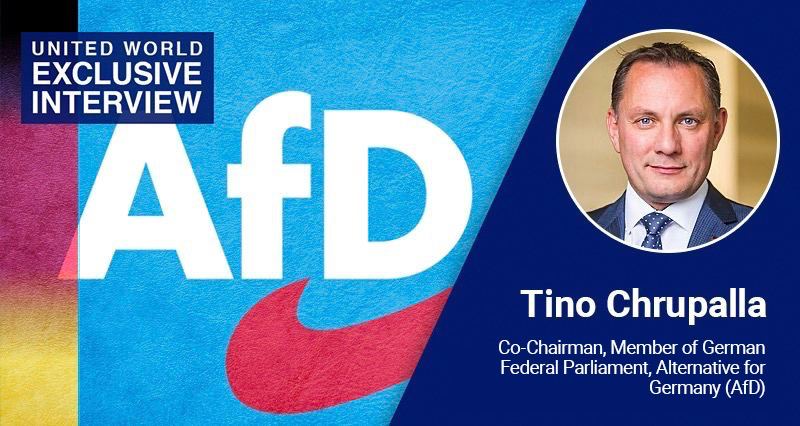
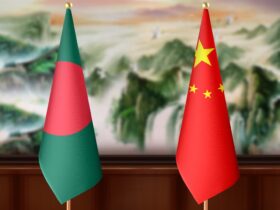
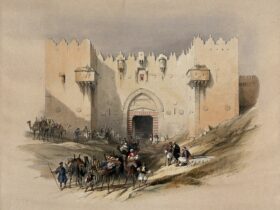
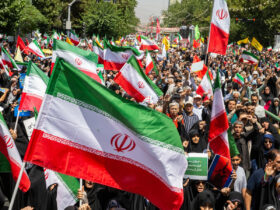
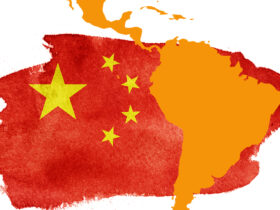
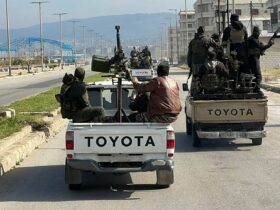
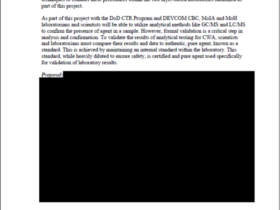
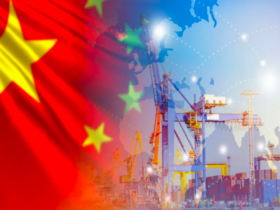
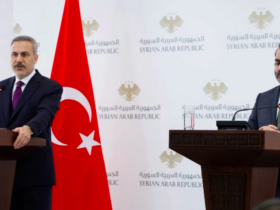

Leave a Reply